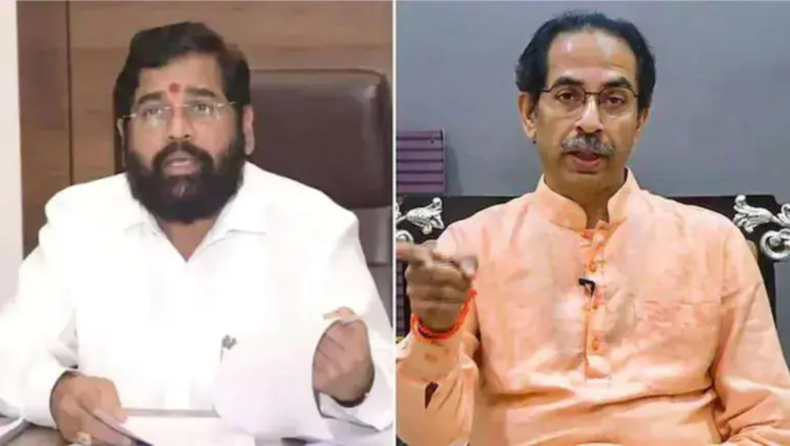
The Supreme Court has issued a notice to the Maharashtra Deputy Speaker, the Secretary of the Maharashtra State Legislative Assembly, Center, and others on pleas filed by the “rebel” faction of the Shiv Sena led by Eknath Shinde. The court will now hear the matter on July 11. The question that everyone is now asking is – what happens next? India Today takes a look at the options available to the various factions and parties in Maharashtra.
On Monday, the dissidents (though they don’t see themselves as that) received a breather when the Supreme Court restrained deputy speaker Narhari Zariwal from disqualifying 16 rebel MLAs until it decides whether Zariwal has the authority to entertain the disqualification petitions when a motion seeking his removal is pending.
For the “Shinde-Sena”
Since the Eknath Shinde faction claims to have the backing of more than two-thirds of the Shiv Sena’s elected MLAs, it would have to proclaim itself a “legal breakaway group” and combine with another political party to claim the right to form the state’s administration.
However, this only works if the leaders of Sena are prepared to join with another party and establish a claim. If the Shinde Faction is unable to demonstrate that it has the majority of MLAs, all of them might be subject to anti-defection proceedings.
In addition, the “Shinde-Sena” group might claim the overall leadership of the Shiv Sena party, from Maharashtra as well as its name and emblem, provided it obtains the backing of a sufficient number of the party’s voting members. However, this question of control over the Sena would need a mass gathering of Sena members, followed by a request to the Election Commission to recognize a group as the “genuine” Sena or a distinct party.
Last Monday, eminent counsel Mukul Rohatgi told India Today that there is no possibility of disqualification because the Shinde faction controls the majority of MLAs.
In an interview with India Today, senior counsel Dushyant Dave urged a revision of the anti-defection statute.
Floor Test

Soon, either the Governor or the Shinde-Sena side may seek a floor test, according to rumors that are circulating rapidly. As of Monday evening, the current Maha Vikas Aghadi cabinet would lose a vote of confidence even if “rebel” MLAs abstained from voting.
Shinde-Sena would face disqualification procedures again if they do not recognize another party as a “genuine breakaway faction.”
A major concern is also whether a floor test may be requested.
In the 2016 Nabam Rebia (Arunachal Pradesh) case, the Supreme Court ruled unequivocally that the Governor “cannot summon, prorogue, and dissolve” the House without the recommendation of the chief minister and the council of ministers, unless the Governor has “reason to believe, that the chief minister and his council of ministers have lost the confidence of the House, it is open to the Governor, to require the chief minister and his council of ministers to prove their majority in the House.”
In the current circumstance, in which a big number of MLAs are in a different state and expressing remarks on camera about leaving the Sena, the Governor would need to evaluate these factors.
The group of Uddhav Thackeray has previously expressed this issue to the Supreme Court.
Senior counsel Devdatt Kamat, representing the Aghadi, contended that “unfavorable and unconstitutional” changes might occur in the state before the next court date. The court declined to address the matter but noted that the Shiv Sena might “appeal to the court if necessary” if a floor test is required before the question of the Deputy Speaker’s authority can be reviewed.
Siddharth Bhatnagar, a senior counsel, stated, “If there is a need for a floor test, there would undoubtedly be a fresh round of urgent litigation against it.”












